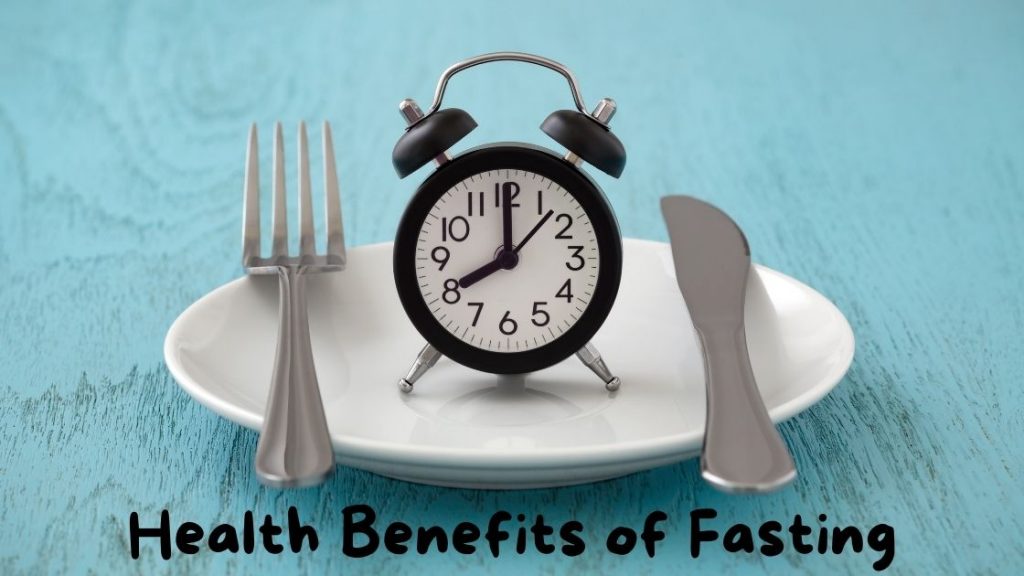How to Balance Hormones While Losing Weight: A Quick Guide
Feel like you’ve done everything by the book to lose weight, but your ideal weight still eludes you? It might be time to focus on your hormones. When hormones are out of balance, they can interfere with metabolism, energy, and mood, making weight loss seem impossible. Here’s a quick guide to help you balance your hormones while reaching your weight loss goals without losing your mind.
Understanding the Role of Hormones in Weight Loss
Hormones are chemical messengers that regulate various processes in your body, including metabolism, hunger, and fat storage. When these hormones are in balance, your body functions optimally, and weight loss becomes more achievable. However, factors like poor diet, lack of exercise, stress, and inadequate sleep can cause hormonal imbalances, leading to difficulties in losing weight.
Common Hormones that Affect Weight Loss:
- Insulin: Regulates blood sugar levels and fat storage. High levels can lead to insulin resistance, making weight loss challenging.
- Cortisol: Known as the “stress hormone,” cortisol can increase appetite and fat storage, especially around the belly.
- Leptin: Signals the brain when you’re full. Leptin resistance can cause overeating and weight gain.
- Ghrelin: The “hunger hormone” that signals when it’s time to eat. High levels can lead to increased appetite.
- Estrogen: Imbalances, especially during menopause, can cause weight gain around the hips and thighs.
- Thyroid Hormones: Regulate metabolism. An underactive thyroid can slow metabolism and make weight loss more difficult.
Balancing these hormones is key to effective weight management. Let’s explore how you can balance your hormones while losing weight.
- Balanced Nutrition: Fuel Your Body the Right Way
- Balanced Nutrition: Fuel Your Body the Right Way
To balance hormones, it’s essential to eat the right nutrients that support hormone production and regulation.
Healthy Fats
Fats are essential for hormone production, especially the sex hormones like estrogen and testosterone. Include sources of healthy fats such as:
- Avocados: Rich in monounsaturated fats that support hormone production.
- Nuts and seeds: Contain omega-3 and omega-6 fatty acids, crucial for brain health and hormone regulation.
- Fatty fish: Salmon, mackerel, and sardines are excellent sources of omega-3 fatty acids, which help reduce inflammation and support hormone balance.
Protein
Proteins are vital for muscle building and hormone regulation. Aim for:
- Lean proteins: Chicken, turkey, and fish provide essential amino acids needed for hormone synthesis.
- Plant-based proteins: Beans, lentils, and quinoa are great for stabilizing blood sugar levels and preventing insulin spikes.
Complex Carbohydrates
Complex carbohydrates are digested more slowly, preventing blood sugar spikes that can lead to insulin resistance.
- Whole grains: Brown rice, quinoa, and oats are rich in fiber and keep blood sugar steady.
- Vegetables and fruits: Provide essential vitamins, minerals, and fiber, which are key for hormone health.
Fiber
A high-fiber diet is essential for regulating estrogen levels. Fiber binds to estrogen in the digestive tract, helping eliminate excess estrogen from the body.
- Vegetables: Broccoli, Brussels sprouts, and leafy greens are packed with fiber and nutrients that support hormone balance.
- Whole grains: Barley, oats, and brown rice can help maintain healthy estrogen levels and promote satiety, reducing overeating.
- Regulate Blood Sugar: Stabilize Your Energy and Metabolism
- Regulate Blood Sugar: Stabilize Your Energy and Metabolism
Blood sugar fluctuations can cause insulin spikes, leading to fat storage and difficulty losing weight. Here’s how to keep your blood sugar stable:
Frequent Meals
Eating smaller, more frequent meals can prevent sudden spikes and drops in blood sugar. Aim for 4-5 smaller meals throughout the day to keep your energy levels consistent.
Low-Glycemic Foods
Choose foods that do not cause a rapid rise in blood sugar:
- Whole grains: Opt for oats, quinoa, and whole wheat instead of refined grains.
- Non-starchy vegetables: Broccoli, spinach, and bell peppers are excellent low-glycemic options.
Cut Added Sugars
Reducing sugary foods and beverages is crucial. Added sugars can lead to insulin resistance, a common factor in hormonal imbalances. Focus on:
- Eliminating sugary snacks and drinks: Replace sodas and candies with fruits and water.
- Reading labels: Be mindful of hidden sugars in processed foods.
- Regular Exercise: Move Your Body Wisely
Exercise plays a critical role in balancing hormones and aiding weight loss. However, it’s important to strike the right balance in your workout routine.
Moderate Activity
Moderate exercises like brisk walking, swimming, or yoga can improve insulin sensitivity, which is crucial for glucose absorption. Aim for at least 150 minutes of moderate-intensity exercise per week to help regulate hormones.
Strength Training
Incorporating strength training exercises, such as lifting weights or body-weight exercises, helps build muscle mass, which boosts metabolism and supports hormone balance. Aim for 2-3 strength-training sessions per week.
Avoid Overtraining
While exercise is beneficial, over-exercising can lead to elevated cortisol levels, the stress hormone that can cause weight gain, especially around the abdominal area. Listen to your body, and incorporate rest days into your workout plan to avoid burnout.
- Prioritize Sleep: Rest and Recover
Sleep is a critical factor in hormone regulation. Lack of sleep can disrupt the production of hormones like cortisol, ghrelin, and leptin, making weight loss more challenging.
Adequate Sleep
Aim for 7-9 hours of sleep each night to maintain hormonal balance. A well-rested body is better equipped to manage stress and control appetite.
Sleep Environment
Create a sleep-friendly environment:
- Keep your bedroom dark, cool, and quiet to promote restful sleep.
- Use comfortable bedding and consider a white noise machine if noise is a problem.
Consistent Schedule
Stick to a regular sleep-wake cycle, even on weekends. Consistency helps regulate your body’s internal clock and improves sleep quality.
- Manage Stress: Keep Cortisol in Check
Chronic stress is a major disruptor of hormonal balance, particularly cortisol. Elevated cortisol levels can increase appetite and promote fat storage, especially around the belly.
Stress Reduction Techniques
Incorporate stress-reducing techniques into your daily routine:
- Meditation: Just 10 minutes of mindfulness meditation can significantly reduce stress levels.
- Deep breathing exercises: Practice deep breathing to calm the nervous system and lower cortisol levels.
Relaxation Activities
Engage in activities that relax and recharge you:
- Reading a book: Find a quiet corner and immerse yourself in a good book.
- Spending time in nature: A walk in the park or a hike can help reduce stress hormones and improve your mood.
Mindfulness Practices
Mindfulness practices, such as yoga or tai chi, can help you manage stress more effectively and reduce its impact on your hormone levels.
- Support Gut Health: Promote a Healthy Microbiome
A healthy gut is essential for hormone balance. Your gut produces and regulates hormones like serotonin, which affects mood and appetite.
Probiotics and Prebiotics
Consume foods that support gut health:
- Probiotics: Yoghurt, kefir, and fermented foods like sauerkraut promote healthy gut bacteria.
- Prebiotics: Foods like garlic, onions, and bananas feed the good bacteria in your gut.
Fiber-Rich Diet
A diet high in fiber promotes beneficial bacteria and helps regulate hormones. Aim for a mix of soluble and insoluble fiber from whole grains, vegetables, and fruits.
Hydration
Drink plenty of water to support digestion and hormone metabolism. Dehydration can negatively impact hormone balance, so aim for at least 8 cups of water daily.
- Consider Supplements: Fill Nutritional Gaps
Sometimes, your diet might not provide all the nutrients needed for optimal hormone balance. Consider these supplements to support your health:
Vitamin D
Ensure adequate levels of vitamin D, which is essential for hormone regulation. Sunlight is a great source, but consider a supplement if you live in a place with limited sun exposure.
Magnesium
Magnesium is crucial for hormone production. Foods like spinach, nuts, seeds, and whole grains are rich in magnesium, or you can opt for a magnesium supplement.
Omega-3 Fatty Acids
Include omega-3 fatty acids found in fish oil or flaxseed oil supplements to reduce inflammation and support hormone production.
Conclusion: Balance is Key
Balancing hormones while losing weight doesn’t have to be complicated. Focus on balanced nutrition, regular exercise, stress management, and adequate sleep. These strategies can keep your hormones in check and help you reach your weight loss goals in a healthy, sustainable way.
Remember, there’s no one-size-fits-all solution. It’s about finding what works best for you and staying consistent. By prioritizing your hormone health, you’ll not only lose weight but also feel more energetic, focused, and balanced.
Takeaway: Stay mindful of your body’s signals, and make small, consistent changes. Balancing your hormones could be the missing piece to your weight loss puzzle. Share your experiences or tips in the comments below!
By following this guide, you can create a holistic plan that addresses your hormone health and supports your weight loss journey. Don’t forget to like and share this post with others who might find it helpful!





